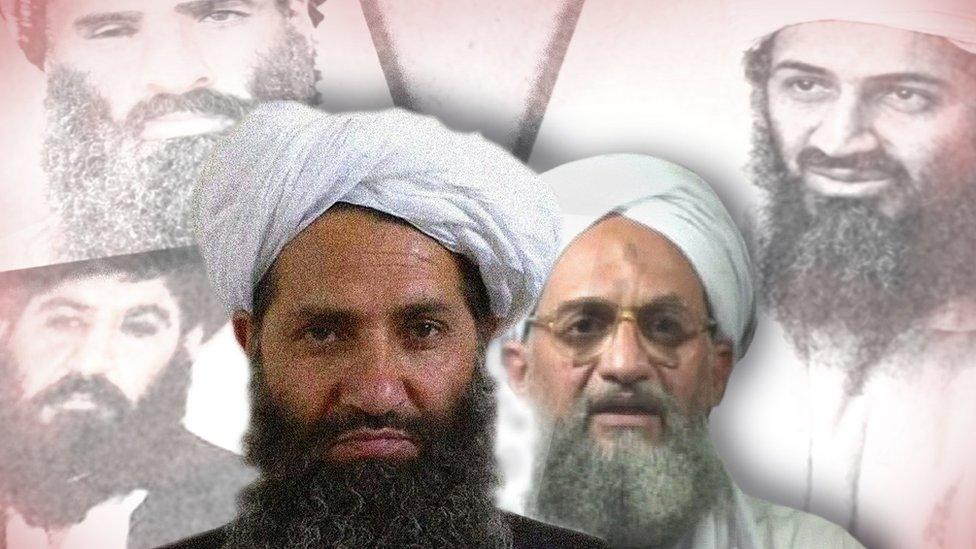Ayman al-Zawahiri: Shock in Kabul as US kills al-Qaeda leader
- Published
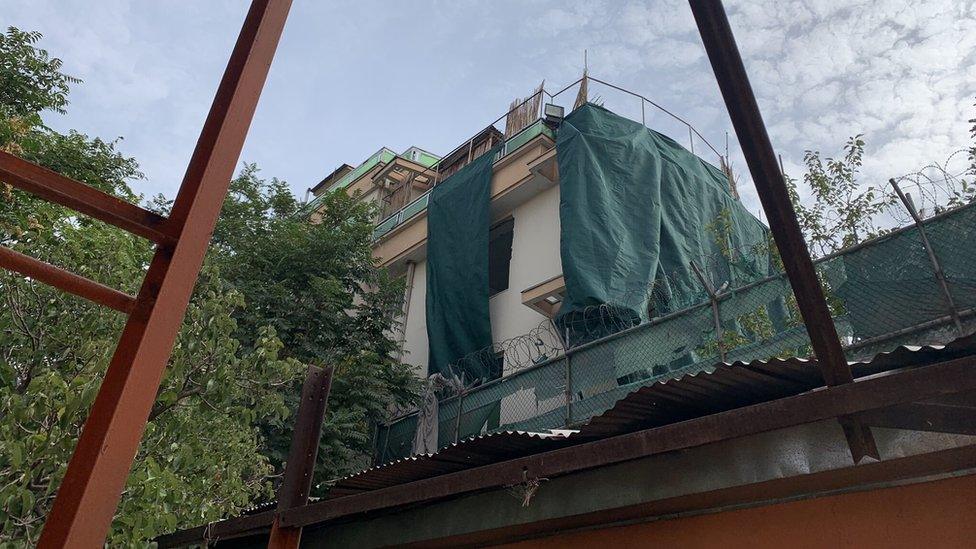
This is the suspected location of the strike in Kabul - green plastic sheeting has been draped over the balconies
The first signs of an operation that was months in the making erupted when an attack rocked the centre of Kabul in the early hours of Sunday morning: we heard two thunderous blasts on our street nearby.
Speculation swirled around who or what had hit this "empty house" in Sherpur.
It is a neighbourhood which became notorious over the past two decades for its garish multi-storey villas, mocked by Kabul residents as the stronghold of corrupt warlords and officials, a gaudy symbol of the spoils of an ugly war.
Kabulis called it Choorpur, the town of thieves. The Taliban took over some of the empty villas, close to some high-walled Western embassies, which also slammed shut when the Taliban took charge.
With every day, new pieces of this puzzle surfaced: of a possible strike on an Islamic State target; the use of a US drone which raised even more questions; the involvement of US forces on the ground.
The mystery ended early on Tuesday morning.
As Kabul woke to the news that the US had killed the leader of al-Qaeda, Ayman al-Zawahiri, in a drone strike, we tried to approach the area on a main road leading into the street threading past Spinney's luxury supermarket and the Afghan Ghazanfar bank.
A single Taliban guard angrily crossed his arms to warn us away.
From a side street, we reached the back of the villa on foot.
Guards and workers in adjacent buildings confirmed which house had been hit on Sunday; balconies protruding from the top floor were now covered with green plastic sheeting.
Had anyone seen any activity, any residents, at this place?
"The house was empty," was the refrain. Was this a reply rehearsed in advance, an echo of the Taliban's official statement?
Owners of nearby buildings told us they had been ordered, hours earlier, to shut their rooftops to everyone, even their own workers.
As news of Zawahiri's killing shot like an electric current through social media, the scene of this explosive moment seemed strangely quiet.
Traffic flowed on surrounding tree-lined streets on this warm summer's day. But as minutes ticked by, more journalists arrived, more passers-by stopped, more Taliban guards showed up.
"If you don't listen to me, I'll speak to you through my gun," one armed Talib warned a colleague as we stood on the main street.
A group of Afghan and foreign journalists approached us, one journalist in tears after an angry altercation on the main road which led to the front of the house.
Her equipment had been forcefully taken away. It was then returned.
Now what had only been whispers grew louder.
There was talk that Arabs had been seen, in recent months, moving through these streets. No one dared speak much about it.
A local journalist living nearby told us: "We've seen non-Afghan residents in this neighbourhood in the past couple of months. They don't speak the local languages. We don't know who they are."
Now there are many questions, conspiracies and a range of possible consequences.
The death of Ayman al-Zawahiri, a top target on America's wanted list, had been reported many times before including last year when he was said to have died of illness.
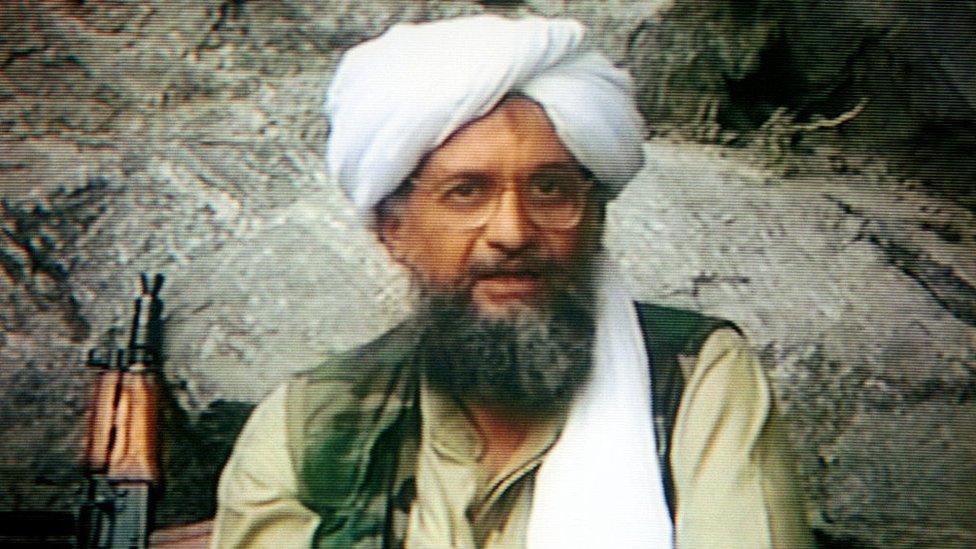
Zawahiri was al-Qaeda's most prominent spokesman and ideologue
If he was alive, he was said be a recluse in the rugged terrain along Afghan-Pakistan border.
But now it emerges that he was a guest of the Taliban leadership, living in that villa smack in the centre of Kabul and said to belong to Sirajuddin Haqqani, the acting Taliban interior minister, who is under US terrorism sanctions.
PROFILE: Who was Ayman al-Zawahiri?
BACKGROUND: Al-Qaeda leader killed in US drone strike
There is an echo of the 2011 US killing of Zawahiri's brother-in-arms, Osama Bin Laden, who had been hiding in plain sight in a villa in the Pakistan city of Abbottabad, down the street from a Pakistani military academy.
There is an echo too of the Taliban's rejoinder to the US after the 9/11 attacks that Bin Laden had only been their honoured guest, in Afghan Pashtun tradition.
The 2020 US-Taliban deal, signed after nearly two years of tortuous negotiations in the Gulf state of Qatar, was meant to sort out this crucial question.
During the talks, we were repeatedly told that the Taliban commitment not to allow Afghanistan to be a safe haven again would be spelled out clearly, in black and white.
But the deal which emerged, with secret annexes, was not so clearcut.
The Taliban vowed to prevent any attacks on US soil from their territory.
But they never explicitly agreed to sever ties with their fellow jihadis including Zawahiri who, like other al-Qaeda leaders, had sworn allegiance to the Taliban leader, or emir, Haibatullah Akhundzada.
Since the Taliban swept into Kabul on 15 August last year, there have been repeated and credible reports of al-Qaeda fighters crossing the Pakistan border into Afghanistan but there have also been repeated Taliban pledges to fight against terrorism.
The Taliban also accuse the US of violating their deal in their attack against a residential neighbourhood of Kabul. A statement from a Taliban spokesman warned that "repeating such actions will damage the existing opportunities".

This watershed moment comes at a time when the Taliban, one year after seizing power, are still struggling to establish international legitimacy and recognition. They may not wish to endanger any fragile progress.
The US and other Western powers have also been trapped in a bind: how do they help the people of Afghanistan, mired in a deepening humanitarian crisis, when many Taliban leaders are still under US terrorism sanctions?
American interests in this region also include the fight against extremist groups like Islamic State, an enemy they share with the Taliban
The Taliban have been walking a political high wire ever since they took charge in Kabul.
How do they maintain their standing in the global jihadi community, including their long-standing relations with al-Qaeda?
Social media is now buzzing with accusations of another US war crime with another alleged extrajudicial killing.
How do they complete their transformation from an insurgency to an internationally respected government but still keep their ultra-conservative credentials?
That high wire is now wobbling. The world is watching.
Biden on Zawahiri killing: 'Justice has been delivered'
- Published2 August 2022
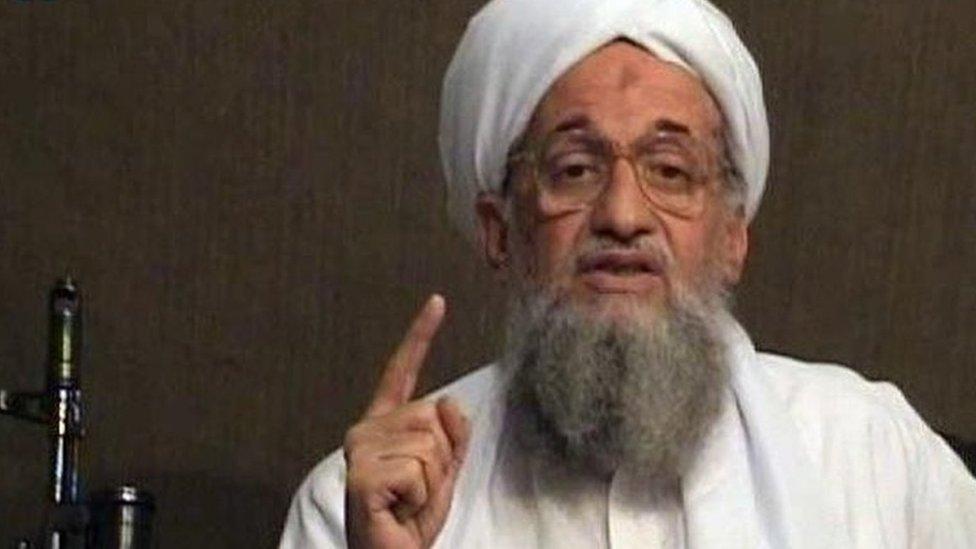
- Published2 August 2022
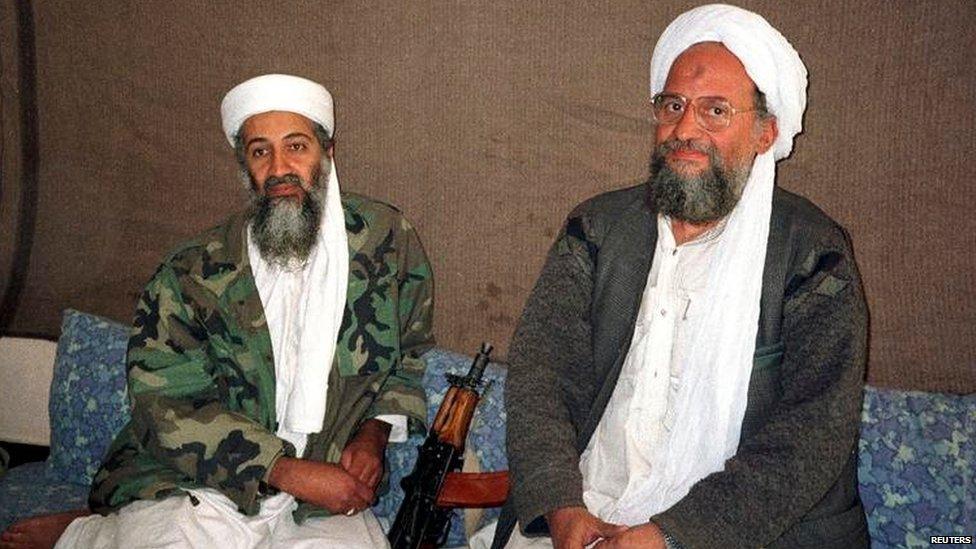
- Published7 September 2021
